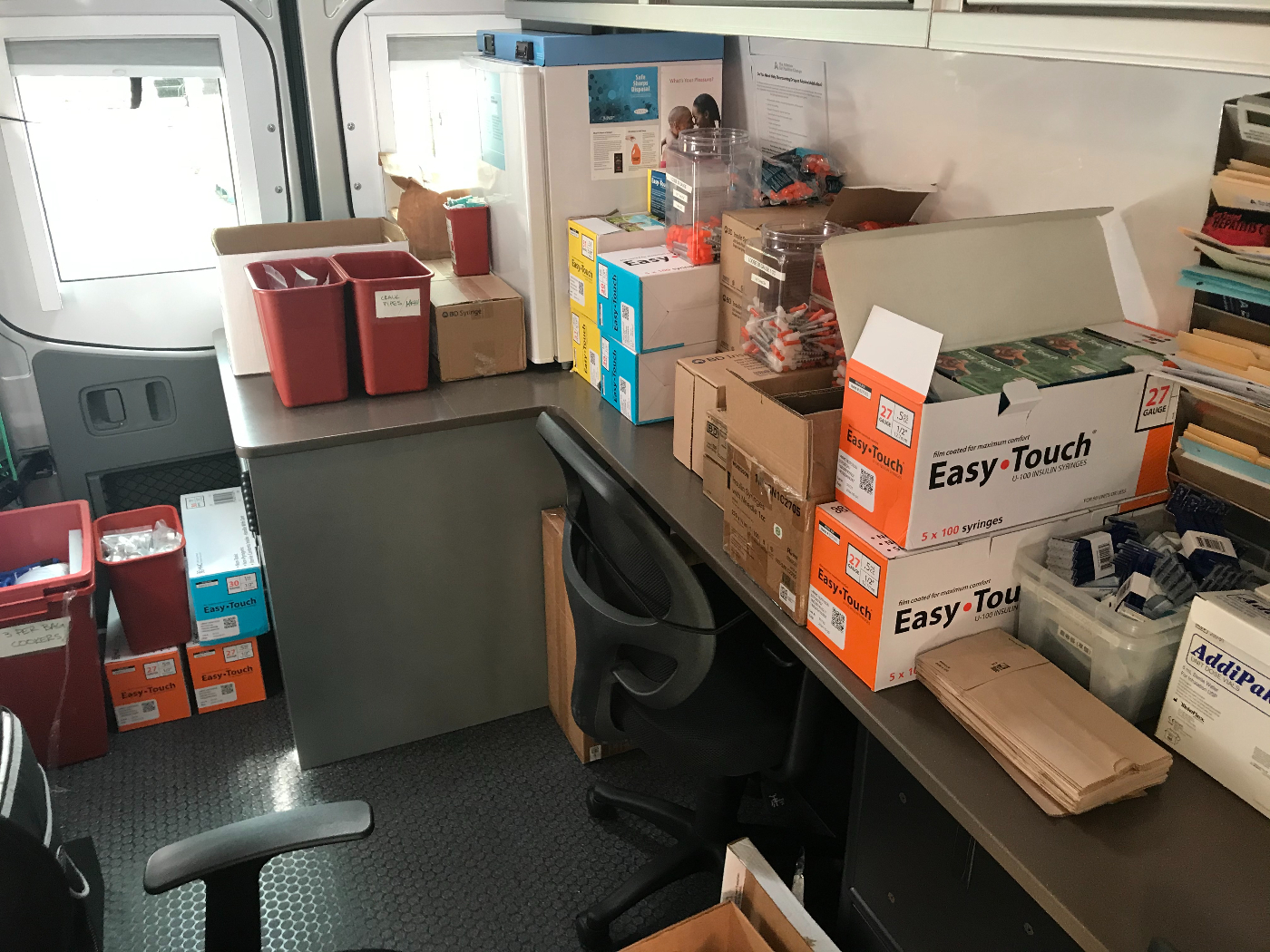On November 9, city council members in Austin, Indiana, voted to approve a syringe service program (SSP). The news, which barely seemed to sneak out of the state, was a victory for harm reduction activists. It effectively reverses a much-criticized decision in Scott County to shutter the services.
“Once you stir up the super-conservatives, they’re loud,” Brandon George, the vice president of Mental Health America of Indiana and the director of Indiana Addiction Issues Coalition, told Filter. “We tried to keep this as quiet as possible.”
Scott County has previously been noisy, attracting mainstream media coverage for a major HIV outbreak. In 2015, then-Governor Mike Pence approved—belatedly and begrudgingly—an SSP there, with much evidence demonstrating that these programs reduce HIV transmissions, among other public health benefits. “I will tell you that I do not support needle exchange as anti-drug policy,” he said at the time. “But this is a public health emergency.”
But six years later, with new cases lower, two of the three Scott County Commissioners decided that the program did not need to exist any longer, and in the early summer, they voted to close the SSP. (It would have to be phased out by the end of the year.) The commissioners’ president, Mike Jones, resorted to the usual, unsubstantiated anti-SSP talking points when justifying the decision. It was, in short, a drummed-up moral dilemma. Despite evidence to the contrary, he explained that the SSP wasn’t helping drug users and was instead just making it easier for them to use.
Advocates studied the legislation, and in time, they landed on an alternative route: Individual municipalities within the county could approve an SSP.
“I know people that are alcoholics, and I don’t buy him a bottle of whiskey, and … I have a hard time handing a needle to somebody that I know they’re going to hurt [themselves] with,” he said.
Harm reduction activists immediately mobilized. Kelly Hans, who was working at the Scott County Health Department and ran the SSP since 2017, helped lead the charge. She and other advocates studied the legislation, and in time, they landed on an alternative route to sanctioned syringe access: Individual municipalities within the county could approve an SSP, even if the county did not.
“We got some legal groups to look at it and give us opinions, and they assured us that there was no gray area,” Brandon George said. “According to the code a city or the county could approve [an SSP].”
However, because the county had moved to shutter it, advocates would have to find a different entity or organization to fund and run the program. So Hans quit her job at the county health department this summer and created a nonprofit, Holding Space Recovery Project. She also persuaded the Indiana Recovery Alliance, which operates in a different county, to be the fiscal sponsor.
“It’s sort of like a big brother, little sister situation,” Hans told Filter. In early November, they met individually with most Austin City Council members, who then voted—3 to 2—in favor of an SSP. The SSP in Austin had previously assisted the whole county out of that location, but now services must remain within the city’s limits.
“It’s a step in the right direction,” Hans said. Her nonprofit also intends to try to open an SSP in Scottsburg, one of the other larger cities in Scott County.
Hans remains cautiously optimistic, even though she recognizes it’s always an uphill battle. Many SSP in the US still struggle to survive, despite the fact that overdose deaths reached a record high during the coronavirus pandemic. Advocates in Atlantic City, for example, are currently fighting to keep their center from shutting down, and advocates in West Virginia say that Governor Jim Justice, by signing harshly restrictive SSP regulations into law, will only worsen an uptick in HIV cases in the state.
“It’s an encouraging development, but it’s unfortunate we continue to have these very contentious debates about basic public health issues,” Leo Beletsky, a professor of law and health sciences at Northeastern University, told Filter of Austin’s news. “We’re still letting moral panics guide policy, to everyone’s detriment.”
Photograph of SSP supplies by Kastalia Medrano




